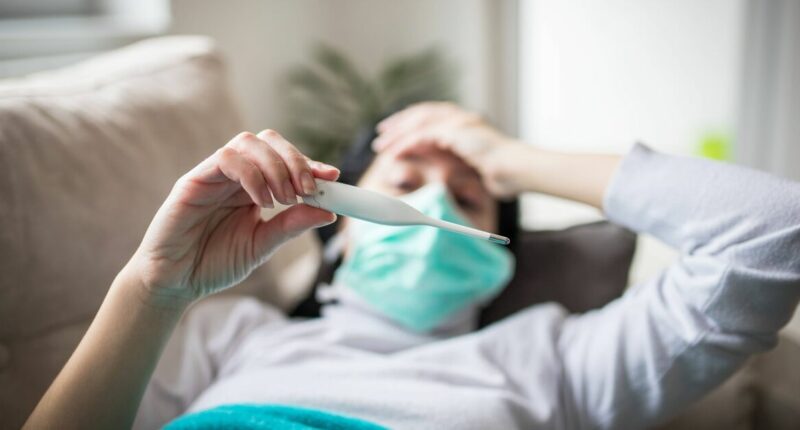Share this @internewscast.com
Recent research has identified a prevalent vitamin deficiency in the UK that may heighten the risk of hospitalization due to Covid-19.
In a collaborative effort, King’s College London, Guy’s and St Thomas’s NHS Foundation Trust, and the University of South Australia explored the potential impact of vitamin D levels on an individual’s susceptibility to Covid-19.
The study also probed whether a deficiency in vitamin D could lead to more severe illness for those infected. Vitamin D is renowned for its immune-boosting properties, prompting scientists to investigate its role in identifying those more vulnerable to the virus.
Published in PLOS One, the study revealed that individuals with insufficient vitamin D were more prone to hospitalization following a Covid-19 diagnosis, although this deficiency did not correlate with an increased likelihood of contracting the virus initially.
These insights add to the expanding evidence suggesting that adequate vitamin D may mitigate the severity of diseases like Covid-19. Researchers evaluated data from over 150,000 participants in the UK Biobank.
Professor Sophia Karagiannis, a co-author of the study and expert in Translational Cancer Immunology and Immunotherapy at King’s College London, commented: “Our research highlights the critical role of vitamin D in maintaining a robust immune system to combat infections. This underscores the necessity for further studies in larger and more varied populations globally.”
The professor added: “Next steps could be to test whether boosting vitamin D levels, by perhaps a combination of dietary adjustments, supplementation and controlled sun exposure, it may be possible to mitigate severe effects of COVID-19 infection.”
Vitamin D supplements can be purchased from Boots for approximately 2p per tablet, though experts have stated it remains uncertain whether these alone can lessen the severity of Covid.
Additional research is required to better comprehend whether enhancing vitamin D status could help shield against more serious outcomes, experts stated.













